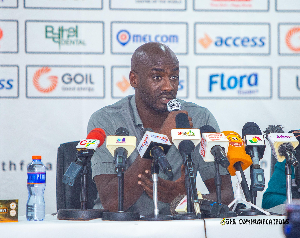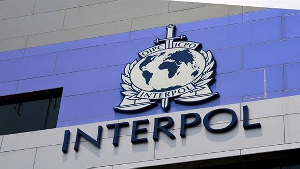The Institute of Economic Affairs’ Winner-Takes-All Advisory Committee has recommended that government slow down the pace for the Constitution Review process to enable proposals for dealing with the current winner-takes-all politics to be factored into the review process.
IEA Winner-Takes-All Committee under the chairmanship of Archbishop Gabriel Charles Palmer-Buckle also recommended the review of the appointing powers of the Executive President.
It said the constitution must mandate the President to appoint people outside his party on merit and in proportion to the votes and electoral strength of the opposition parties into government.
The Committee in a statement to the Ghana News Agency signed by Mrs Jean Mensa, IEA Executive Director also suggested that the appointment of heads of professional bodies, independent constitutional bodies, Civil/Public Service and Members of Council of State must be done by independent constitutional bodies.
The Committee was set-up to re-examine Ghana’s Winner-Takes-All system; and to supervise the conduct of a nation-wide public consultation process.
The recommendation based on national consultation forum organized recently noted that there should be a strict Separation of Powers between the Executive and Legislature to ensure that Parliament acts as a check on the Executive.
It also recommended for a long-term National Development Plan formulated with inputs from across the political divide prior to the conduct of General Elections which must be entrenched in the Constitution to ensure that all Political Parties that are voted to power are guided by the Plan.
“Manifestos of Political Parties must explain how the targets in the National Development Plan would be achieved,” the statement stated.
On the Winner-Takes-All governance systems, the committee said the Constitution facilitates the practice of Winner-Takes-All politics and called for appropriate constitutional amendments to ensure that institutions and systems work to curb the practice.
The Committee described the Winner-Takes-All politics as divisive which poses a threat to Ghana’s fledgling democracy.
“Winner-Takes-All and the politics of exclusion also manifests at the intra-party level where those who are deemed not to have contributed to the electioneering campaign of a candidate; and held different views were marginalized after elections,” the statement said.
It recommended State Funding for Political Parties to prevent a few financiers from hijacking Political Parties.
The statement said proportional representation may not be the solution to Winner-Takes-All politics for now due to its complex nature; however efforts must be made to deal with the negative and divisive effects of the practice of Winner-Takes –All politics.
According to the statement, generally, it is contended that as a result of this system, Ghana has escaped near social and political breakdown through perceived monopoly of political and economic clout by the winning party, threats of violence and legal challenge to the tenure of the Presidency and the electoral system in the last two General Elections.
Some of the critical constitutional and legal issues that have contributed to the Winner-Takes-All politics in Ghana were outlined and thoroughly discussed.
Extensive Powers of the Executive Presidency, Weak Legislature as a result of the hybrid system of government, District Level Governance based appointments by the President, Political Parties pursuing only their interests after winner power and Weak Public Institutions due to partisan consideration in appointments.
The IEA- WTA Public Consultations on Winner-Takes-All was attended by over 200 participants representing the leadership of registered Political Parties, the Electoral Commission, the National Commission for Civic Education, Media, Clergy, Traditional Authorities, Youth Groups, Women’s’ Groups, Security Agencies, Ghana National Association of Teachers, National Association of Graduate Teachers, Ghana Registered Nurses Association, Commission on Human Rights and Administrative.
General News of Thursday, 3 July 2014
Source: GNA
IEA Advisory Committee makes recommendations

















